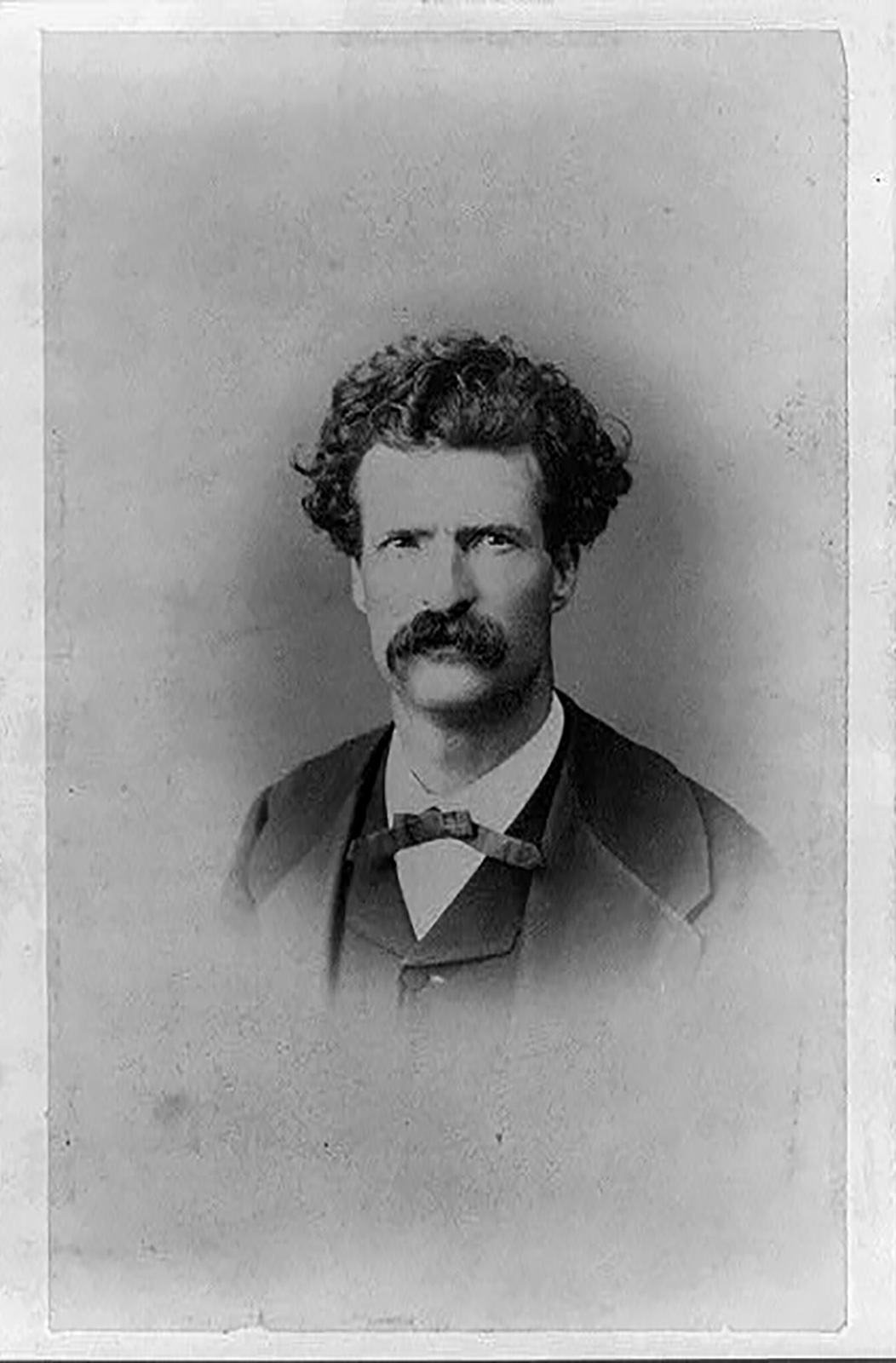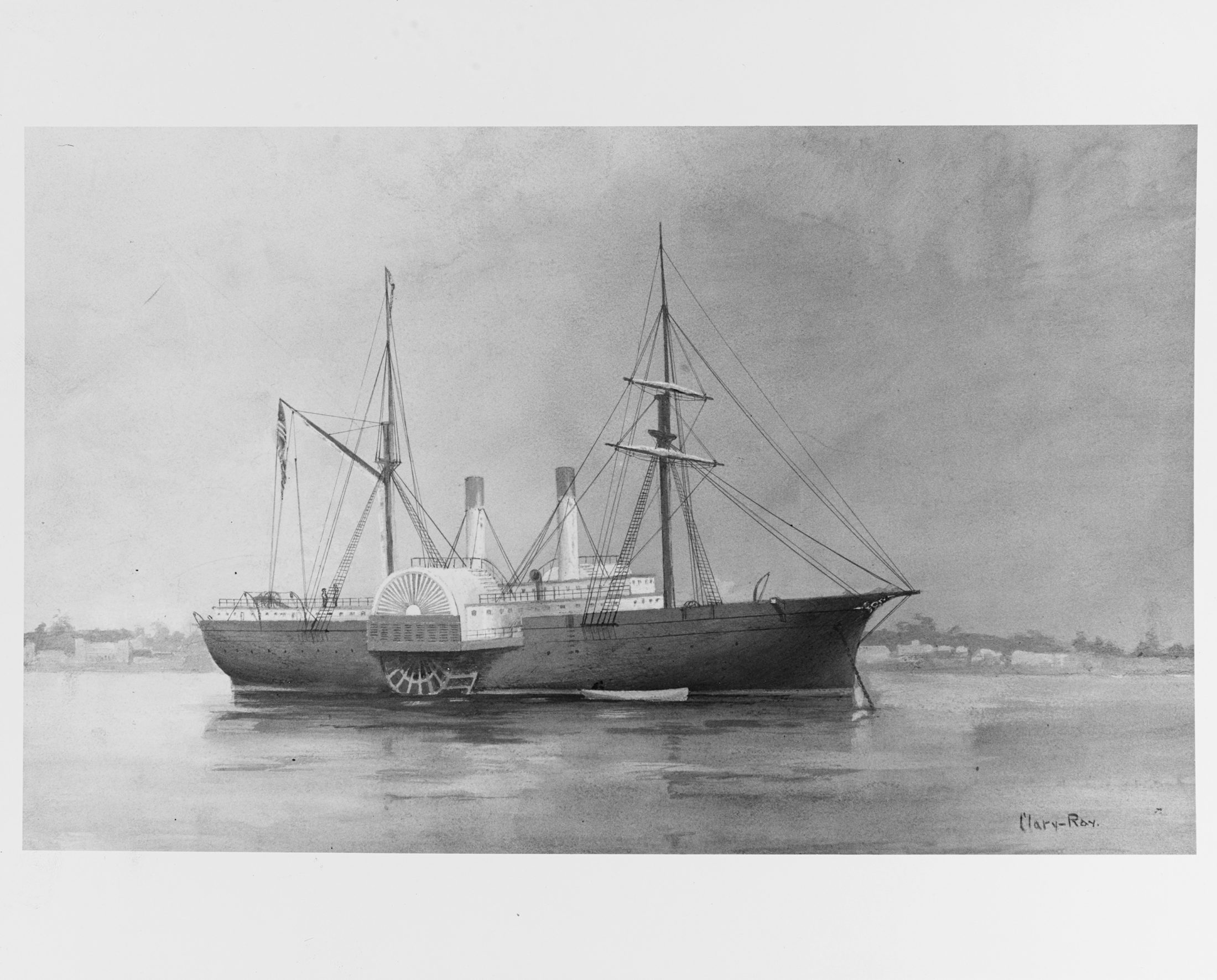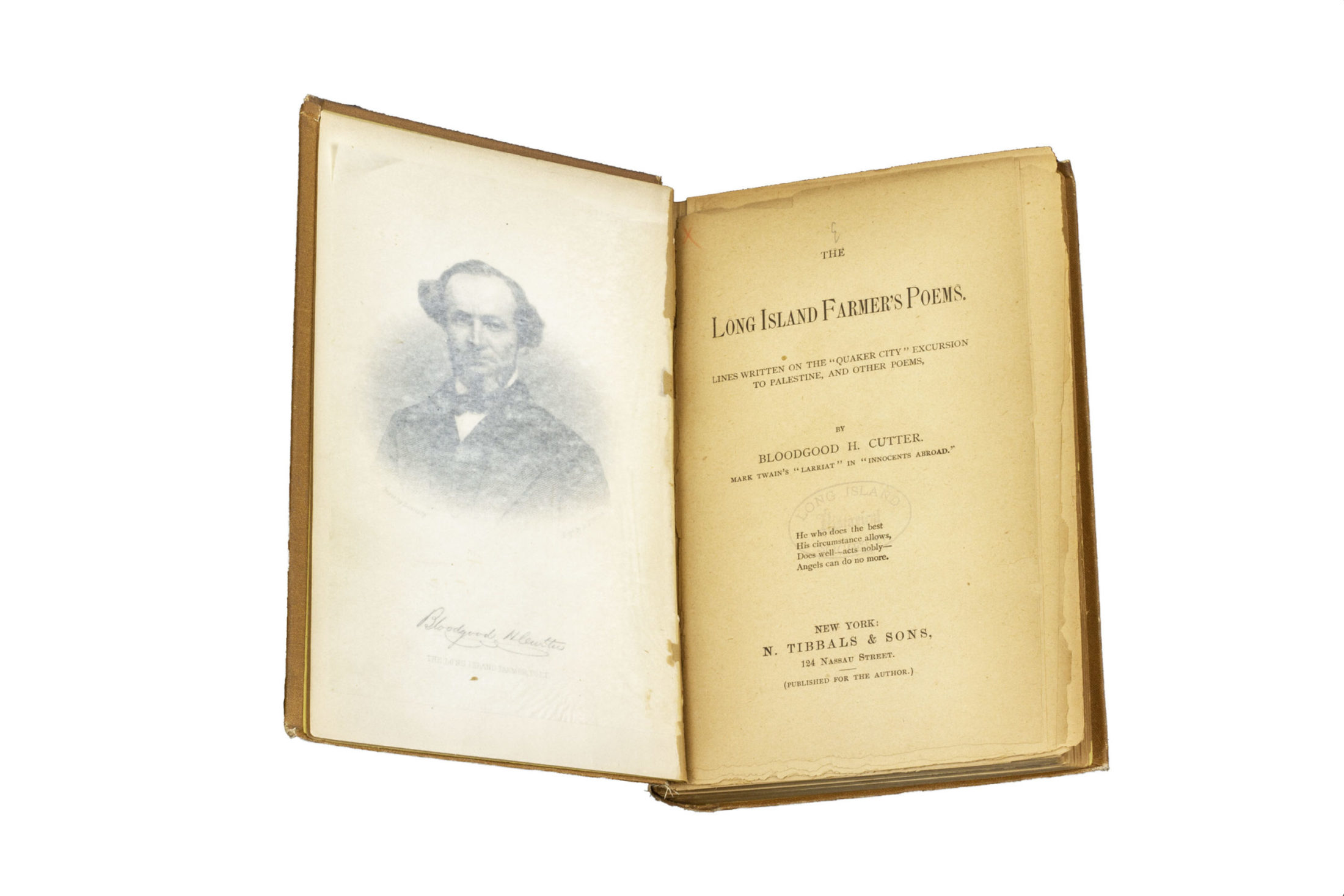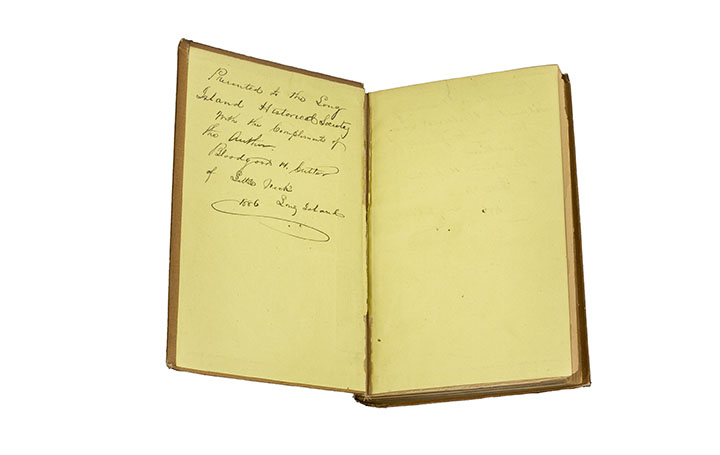Mark Twain’s “Poet Lariat”
Bloodgood Cutter and the Famed Quaker City Expedition
In 1867, Bloodgood Cutter traveled with the “Quaker City Expedition,” a five-month tourist cruise throughout the Mediterranean and the Holy Land. The trip quickly became known around the world because of a young journalist on the trip named Samuel Clemens (better known as Mark Twain). Clemens wrote about the journey and his fellow travelers first in a series of newspaper articles and then, in 1869, in his best-selling novel Innocents Abroad. The novel immortalized Bloodgood as the “Poet Lariat” of the Quaker City Expedition. While Twain bestowed the title with his characteristic sardonicism, Cutter nevertheless embraced it.

Samuel Langhorne Clemens, aka Mark Twain, 1867
Abdullah Freres
LOT 13301, no. 8
Library of Congress
Several Brooklynites from Henry Ward Beecher’s Plymouth Church congregation organized the 1867 Quaker City Expedition. Beecher himself was originally slated to attend but withdrew before the steamer set sail in June 1867. Although some prospective passengers also withdrew when Beecher did, ultimately 75 excursionists—including Bloodgood Cutter and Mark Twain—set out to explore the Old World for the hefty price of $1,250 each. According to Twain, the group included “three ministers of the gospel, eight doctors, sixteen or eighteen ladies, several military and naval chieftains with sounding titles, an ample crop of ‘professors’ of various kinds, and a gentleman who had ‘Commissioner of the United States of America to Europe, Asia, and Africa’ thundering after his name in one awful blast!”

USS Quaker City, circa 1900
Clary Ray
NH57840
Naval History and Heritage Command
Traveling across the Atlantic Ocean to destinations including Gibraltar, Paris, Florence, Rome, Constantinople, Jerusalem, Alexandria, and Cairo, the pilgrims spent a great deal of time together, and the quirks of some travelers became the subject of Twain’s sharp pen. Of Bloodgood Cutter, the ship’s unwanted Poet Lariat, Twain recorded another passenger exclaiming, “I never seen one of them poets that yet knowed anything. He’ll go down and grind out about four reams of the awfellest slush about that old rock and give it to…anybody he comes across first which he can impose on. Pity but somebody’d take that poor old lunatic and dig all that poetry rubbage out of him.”

Bloodgood Cutter
The Long Island Farmer’s Poems (New York: N. Tibbals & Sons, 1886)
Brooklyn Historical Society

Bloodgood Cutter
Inscription in The Long Island Farmer’s Poems (New York: N. Tibbals & Sons, 1886)
Brooklyn Historical Society
Twain’s remarks, whether good-humored or mean-spirited, did not affect Cutter’s fondness for expressing himself in prose. He continued to write and share his poems—sometimes irreverent “musings on a wheel-barrow,” sometimes commentaries on friends’ weddings or deaths, sometimes reactions to major events like the Civil War. In 1886, Cutter finally collected hundreds of his pieces into a book, The Long Island Farmer’s Poems. At least half of the book was made up of poems inspired by the Quaker City Expedition, with one that included a gentle gibe at the young man who made him “famous.”
One droll person there was on board,
The passengers called him “Mark Twain;”
He’d talk and write all sort of stuff,
In his queer way, would it explain.